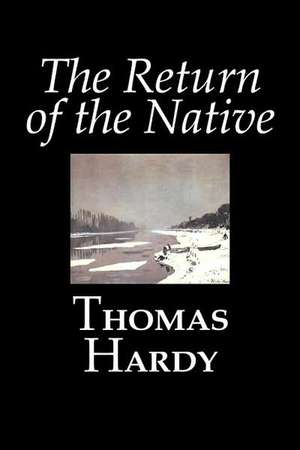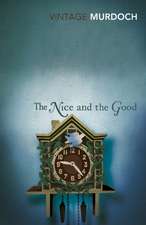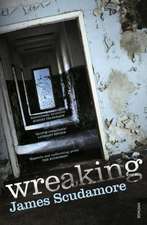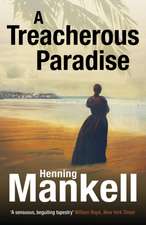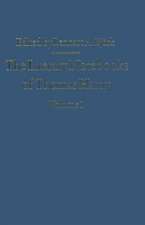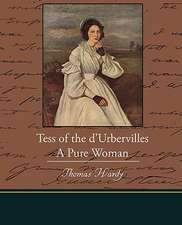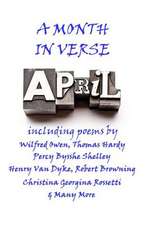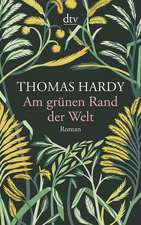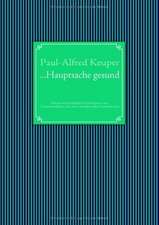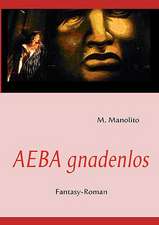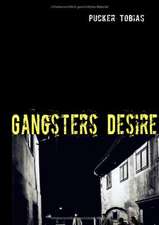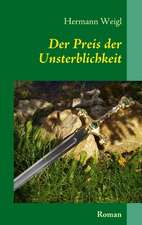The Return of the Native
Autor Thomas Hardyen Limba Engleză Paperback – 31 dec 2006
| Toate formatele și edițiile | Preț | Express |
|---|---|---|
| Paperback (31) | 39.38 lei 22-36 zile | |
| Bantam Classics – 31 ian 1982 | 39.38 lei 22-36 zile | |
| Vintage Publishing – 3 iun 2010 | 46.26 lei 25-31 zile | +21.53 lei 5-11 zile |
| Penguin Books – 23 iun 1999 | 50.73 lei 25-31 zile | +22.02 lei 5-11 zile |
| Oxford University Press – 14 aug 2008 | 50.73 lei 10-16 zile | +22.02 lei 5-11 zile |
| CREATESPACE – | 64.23 lei 22-36 zile | |
| CREATESPACE – | 79.17 lei 22-36 zile | |
| CREATESPACE – | 90.39 lei 22-36 zile | |
| CREATESPACE – | 92.33 lei 22-36 zile | |
| – | 97.26 lei 22-36 zile | |
| – | 124.64 lei 22-36 zile | |
| CreateSpace Independent Publishing Platform – | 125.11 lei 22-36 zile | |
| CREATESPACE – | 135.15 lei 22-36 zile | |
| – | 142.35 lei 22-36 zile | |
| CREATESPACE – | 142.70 lei 22-36 zile | |
| CHIZINE PUBN – 25 mai 2017 | 214.31 lei 17-23 zile | +19.89 lei 5-11 zile |
| CreateSpace Independent Publishing Platform – | 84.88 lei 43-57 zile | |
| KUPERARD (BRAVO LTD) – 22 mar 2001 | 90.35 lei 43-57 zile | |
| Digireads.com – 8 iun 2018 | 100.78 lei 43-57 zile | |
| – | 119.39 lei 43-57 zile | |
| SMK Books – 5 ian 2012 | 127.01 lei 43-57 zile | |
| Crescent Moon Publishing – 18 mai 2020 | 131.65 lei 43-57 zile | |
| SC Active Business Development SRL – 29 noi 2017 | 145.14 lei 38-44 zile | |
| Aegypan Press – 31 dec 2006 | 145.38 lei 43-57 zile | |
| TREDITION CLASSICS – 30 noi 2011 | 154.90 lei 38-44 zile | |
| CreateSpace Independent Publishing Platform – 3 dec 2015 | 200.95 lei 43-57 zile | |
| Simon & Brown – 30 oct 2018 | 203.68 lei 38-44 zile | |
| Simon & Brown – 15 noi 2018 | 218.25 lei 38-44 zile | |
| Maven Books – iul 2023 | 221.09 lei 43-57 zile | |
| Echo Library – 30 iun 2003 | 230.74 lei 38-44 zile | |
| Echo Library – 31 mar 2006 | 262.61 lei 38-44 zile | |
| TREDITION CLASSICS – 31 oct 2011 | 263.95 lei 43-57 zile | |
| Hardback (5) | 85.00 lei 25-31 zile | +37.40 lei 5-11 zile |
| EVERYMAN – 8 oct 1992 | 85.00 lei 25-31 zile | +37.40 lei 5-11 zile |
| Cambridge University Press – 24 feb 2021 | 808.62 lei 22-36 zile | |
| SMK Books – 3 apr 2018 | 241.00 lei 43-57 zile | |
| Simon & Brown – 30 oct 2018 | 256.80 lei 38-44 zile | |
| Simon & Brown – 15 noi 2018 | 273.15 lei 38-44 zile |
Preț: 145.38 lei
Nou
Puncte Express: 218
Preț estimativ în valută:
27.82€ • 29.12$ • 23.02£
27.82€ • 29.12$ • 23.02£
Carte tipărită la comandă
Livrare economică 07-21 aprilie
Preluare comenzi: 021 569.72.76
Specificații
ISBN-13: 9781603120142
ISBN-10: 1603120149
Pagini: 348
Dimensiuni: 152 x 229 x 20 mm
Greutate: 0.51 kg
Editura: Aegypan Press
Locul publicării:United States
ISBN-10: 1603120149
Pagini: 348
Dimensiuni: 152 x 229 x 20 mm
Greutate: 0.51 kg
Editura: Aegypan Press
Locul publicării:United States
Notă biografică
Thomas Hardy (1840 - 1928) was an English novelist and poet. A Victorian realist in the tradition of George Eliot, he was influenced both in his novels and in his poetry by Romanticism, especially William Wordsworth. He was highly critical of much in Victorian society, though Hardy focused more on a declining rural society. While Hardy wrote poetry throughout his life and regarded himself primarily as a poet, his first collection was not published until 1898. Initially, therefore, he gained fame as the author of such novels as Far from the Madding Crowd (1874), The Mayor of Casterbridge (1886), Tess of the d'Urbervilles (1891), and Jude the Obscure (1895). During his lifetime, Hardy's poetry was acclaimed by younger poets (particularly the Georgians) who viewed him as a mentor. After his death his poems were lauded by Ezra Pound, W. H. Auden and Philip Larkin. Many of his novels concern tragic characters struggling against their passions and social circumstances and they are often set in the semi-fictional region of Wessex; initially based on the medieval Anglo-Saxon kingdom, Hardy's Wessex eventually came to include the counties of Dorset, Wiltshire, Somerset, Devon, Hampshire and much of Berkshire, in southwest and south central England. He destroyed the manuscript of his first, unplaced novel, but -- encouraged by mentor and friend George Meredith -- tried again. His important work took place in an area of southern England he called Wessex, named after the English kingdom that existed before the Norman Conquest.
Extras
A SATURDAY afternoon in November was approaching the time of twilight, and the vast tract of unenclosed wild known as Egdon Heath embrowned itself moment by moment. Overhead the hollow stretch of whitish cloud shutting out the sky was as a tent which had the whole heath for its floor.
The heaven being spread with this pallid screen and the earth with the darkest vegetation, their meeting-line at the horizon was clearly marked. In such contrast the heath wore the appearance of an instalment of night which had taken up its place before its astronomical hour was come: darkness had to a great extent arrived hereon, while day stood distinct in the sky. Looking upwards, a furze-cutter would have been inclined to continue work; looking down, he would have decided to finish his faggot and go home. The distant rims of the world and of the firmament seemed to be a division in time no less than a division in matter. The face of the heath by its mere complexion added half an hour to evening; it could in like manner retard the dawn, sadden noon, anticipate the frowning of storms scarcely generated, and intensify the opacity of a moonless midnight to a cause of shaking dread.
In fact, precisely at this transitional point of its nightly roll into darkness the great and particular glory of the Egdon waste began, and nobody could be said to understand the heath who had not been there at such a time. It could best be felt when it could not clearly be seen, its complete effect and explanation lying in this and the succeeding hours before the next dawn: then, and only then, did it tell its true tale. The spot was, indeed, a near relation of night, and when night showed itself an apparent tendency to gravitate together could be perceived in its shades and the scene. The sombre stretch of rounds and hollows seemed to rise and meet the evening gloom in pure sympathy, the heath exhaling darkness as rapidly as the heavens precipitated it. And so the obscurity in the air and the obscurity in the land closed together in a black fraternization towards which each advanced half-way.
The place became full of a watchful intentness now; for when other things sank brooding to sleep the heath appeared slowly to awake and listen. Every night its Titanic form seemed to await something; but it had waited thus, unmoved, during so many centuries, through the crises of so many things, that it could only be imagined to await one last crisis—the final overthrow.
The heaven being spread with this pallid screen and the earth with the darkest vegetation, their meeting-line at the horizon was clearly marked. In such contrast the heath wore the appearance of an instalment of night which had taken up its place before its astronomical hour was come: darkness had to a great extent arrived hereon, while day stood distinct in the sky. Looking upwards, a furze-cutter would have been inclined to continue work; looking down, he would have decided to finish his faggot and go home. The distant rims of the world and of the firmament seemed to be a division in time no less than a division in matter. The face of the heath by its mere complexion added half an hour to evening; it could in like manner retard the dawn, sadden noon, anticipate the frowning of storms scarcely generated, and intensify the opacity of a moonless midnight to a cause of shaking dread.
In fact, precisely at this transitional point of its nightly roll into darkness the great and particular glory of the Egdon waste began, and nobody could be said to understand the heath who had not been there at such a time. It could best be felt when it could not clearly be seen, its complete effect and explanation lying in this and the succeeding hours before the next dawn: then, and only then, did it tell its true tale. The spot was, indeed, a near relation of night, and when night showed itself an apparent tendency to gravitate together could be perceived in its shades and the scene. The sombre stretch of rounds and hollows seemed to rise and meet the evening gloom in pure sympathy, the heath exhaling darkness as rapidly as the heavens precipitated it. And so the obscurity in the air and the obscurity in the land closed together in a black fraternization towards which each advanced half-way.
The place became full of a watchful intentness now; for when other things sank brooding to sleep the heath appeared slowly to awake and listen. Every night its Titanic form seemed to await something; but it had waited thus, unmoved, during so many centuries, through the crises of so many things, that it could only be imagined to await one last crisis—the final overthrow.
Recenzii
"Throbs with a very Victorian sense of geologies, pre-histories and even astronomy; you can feel the planet moving under the feet."
--Daily Telegraph
"Inimitably brooding style."
--The Times
"Besides my complete identification with its heroine, I loved the sheer relentless power of the writing. What other writer would start a novel with six solid pages of description without introducing a single character? Like D H Lawrence, Hardy isn't to everyone's taste: too much blighted love and atheistic pessimism. To me, ensconced in a convent thick with incense, confession and church twice on Sundays, a little atheistic pessimism was a welcome antidote."
--Maeve Haran, Independent
"Throbs with a very Victorian sense of geologies, pre-histories and even astronomy; you can feel the planet moving under the feet" Daily Telegraph "Inimitably brooding style" The Times "Besides my complete identification with its heroine, I loved the sheer relentless power of the writing. What other writer would start a novel with six solid pages of description without introducing a single character? Like D H Lawrence, Hardy isn't to everyone's taste: too much blighted love and atheistic pessimism. To me, ensconced in a convent thick with incense, confession and church twice on Sundays, a little atheistic pessimism was a welcome antidote" -- Maeve Haran, Independent "Splendid" Daily Telegraph "Most of Hardy's novels, and particularly the early ones, have a Shakespearean power of creating a unique world and climate of being ... The Return of the Native is ... thoughtful, valedictory, poetic, tinged with the somberness of an uncertainty which seems to well up from the depths of the author's own subconscious ... Hardy's sense of the tragic life of human beings, mere small fragments of consciousness in a vast uncaring universe, comes directly from his own youthful awareness of the place and circumstances described in the novel" -- John Bayley
--Daily Telegraph
"Inimitably brooding style."
--The Times
"Besides my complete identification with its heroine, I loved the sheer relentless power of the writing. What other writer would start a novel with six solid pages of description without introducing a single character? Like D H Lawrence, Hardy isn't to everyone's taste: too much blighted love and atheistic pessimism. To me, ensconced in a convent thick with incense, confession and church twice on Sundays, a little atheistic pessimism was a welcome antidote."
--Maeve Haran, Independent
"Throbs with a very Victorian sense of geologies, pre-histories and even astronomy; you can feel the planet moving under the feet" Daily Telegraph "Inimitably brooding style" The Times "Besides my complete identification with its heroine, I loved the sheer relentless power of the writing. What other writer would start a novel with six solid pages of description without introducing a single character? Like D H Lawrence, Hardy isn't to everyone's taste: too much blighted love and atheistic pessimism. To me, ensconced in a convent thick with incense, confession and church twice on Sundays, a little atheistic pessimism was a welcome antidote" -- Maeve Haran, Independent "Splendid" Daily Telegraph "Most of Hardy's novels, and particularly the early ones, have a Shakespearean power of creating a unique world and climate of being ... The Return of the Native is ... thoughtful, valedictory, poetic, tinged with the somberness of an uncertainty which seems to well up from the depths of the author's own subconscious ... Hardy's sense of the tragic life of human beings, mere small fragments of consciousness in a vast uncaring universe, comes directly from his own youthful awareness of the place and circumstances described in the novel" -- John Bayley
Descriere
Descriere de la o altă ediție sau format:
'To be loved to madness - such was her great desire'Eustacia Vye criss-crosses the wild Egdon Heath, eager to experience life to the full in her quest for 'music, poetry, passion, war'. She marries Clym Yeobright, native of the heath, but his idealism frustrates her romantic ambitions and her discontent draws others into a tangled web of deceit and unhappiness.Early readers responded to Hardy's 'insatiably observant' descriptions of the heath, a setting that for D. H. Lawrence provided the 'real stuff of tragedy'. For modern readers, the tension between the mythic setting of the heath and the modernity of the characters challenges our freedom to shape the world as we wish; like Eustacia, we may not always be able to live our dreams.This edition has a critically established text based on the manuscript and first edition. ABOUT THE SERIES: For over 100 years Oxford World's Classics has made available the widest range of literature from around the globe. Each affordable volume reflects Oxford's commitment to scholarship, providing the most accurate text plus a wealth of other valuable features, including expert introductions by leading authorities, helpful notes to clarify the text, up-to-date bibliographies for further study, and much more.
'To be loved to madness - such was her great desire'Eustacia Vye criss-crosses the wild Egdon Heath, eager to experience life to the full in her quest for 'music, poetry, passion, war'. She marries Clym Yeobright, native of the heath, but his idealism frustrates her romantic ambitions and her discontent draws others into a tangled web of deceit and unhappiness.Early readers responded to Hardy's 'insatiably observant' descriptions of the heath, a setting that for D. H. Lawrence provided the 'real stuff of tragedy'. For modern readers, the tension between the mythic setting of the heath and the modernity of the characters challenges our freedom to shape the world as we wish; like Eustacia, we may not always be able to live our dreams.This edition has a critically established text based on the manuscript and first edition. ABOUT THE SERIES: For over 100 years Oxford World's Classics has made available the widest range of literature from around the globe. Each affordable volume reflects Oxford's commitment to scholarship, providing the most accurate text plus a wealth of other valuable features, including expert introductions by leading authorities, helpful notes to clarify the text, up-to-date bibliographies for further study, and much more.
Cuprins
List of Illustrations; General Editor's Preface; Acknowledgements; Chronology; Abbreviations of Texts of The Return of the Native; Introduction; The Return of the Native; Apparatus; Variations in Punctuation and Styling; End-of-Line Word Division; Editorial Emendations; Appendices: Appendix 1. Hardy's Preface to the Novel; Appendix 2. Description of the Manuscript; Appendix 3. Description of Substantive Editions; Appendix 4. Dialect Glossary and Table of Changes to Standard and Non-standard Speech; Appendix 5. A Note on Hardy's Note to VI.iii; Appendix 6. Egdon Heath and the Dorset Heathlands; Appendix 7. Illustrations to the Belgravia Serial Edition; Notes; Works Cited in the Notes; Textual Notes; Explanatory Notes.
